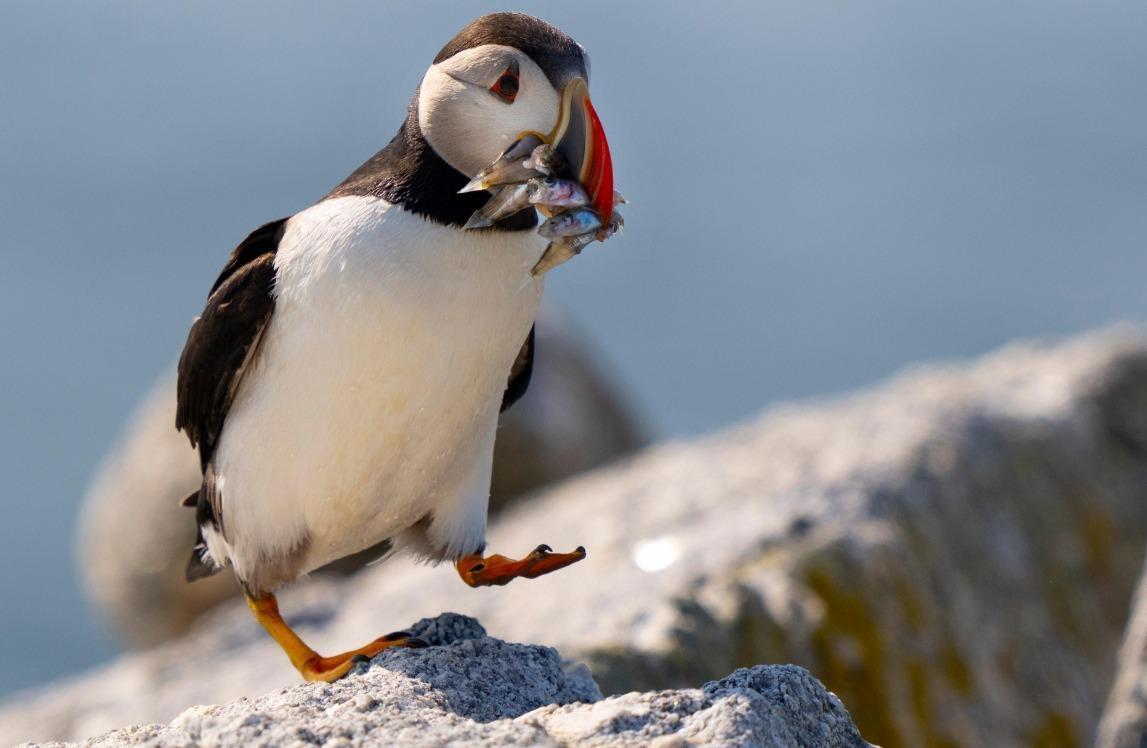
On remote islands off the Maine coast, a unique bird held its own this year in the face of climate change.
Atlantic puffins, clownish seabirds with colorful bills and waddling gaits, had their second consecutive rebound year for fledging chicks after suffering a catastrophic 2021, said scientists who monitor the birds. The news flies in the face of environmental trends, as scientists have said warming waters off New England jeopardize the birds because that reduces the kind of fish they need to feed their chicks.
One fish, though, the sand lance, has remained in abundance this year, allowing puffins to thrive, said Don Lyons, director of conservation science at National Audubon Society’s Seabird Institute in Bremen, Maine. He said it’s a sign the impact of climate change on ecosystems is not always as tidy as we think.
The encouraging news comes as the Audubon Society is celebrating its 50th anniversary of tending to Maine’s puffin colonies, which it restored from just a few dozen pairs. There are now as many as 3,000 birds, and the population is stable, Lyons said.
“This year is a good example of how complex things are. We can’t boil it down to one variable,” he said. “We still have a lot to learn.”
The puffins, also known as “clowns of the sea” or “sea parrots,” nest in burrows and feed their chicks small fish such as herring. Two years ago, the colonies suffered one of their worst years for reproduction in decades due to a lack of those fish. Only about a quarter of the birds were able to raise chicks that summer.
Audubon and other conservation groups have tied the fish shortage to warming ocean temperatures. The Gulf of Maine, which has puffin colonies on its islands, is warming faster than most of the world’s oceans, and some recent years have been especially warm. The early part of this summer appears to have been “still unusually warm,” said David Reidmiller, climate center director at Gulf of Maine Research Institute in Portland, Maine.